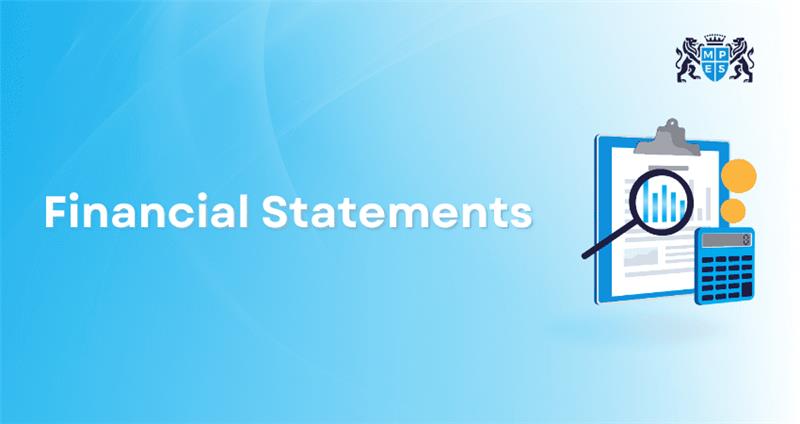Learning Options
- Online Video-Based Learning
- Flexible Schedule
- Expert Trainers with Industry Experience
- High Pass Rates
- 24/7 Personalised Support
- Interactive Learning Materials
Overview
The CISM Certified Information Security Manager course is tailored for professionals seeking to enhance their knowledge and skills in information security management. With cybersecurity being a critical priority for organisations worldwide, this course equips learners with the tools and strategies needed to manage, govern, and protect their organisation's information assets. Effective information security management is vital in safeguarding sensitive data, ensuring compliance, and mitigating risks in an ever-evolving digital landscape.
This comprehensive course covers the four key domains of information security management: Information Risk Management, Information Security Governance, Information Security Program Development, and Incident Management. Delegates will gain a deep understanding of security policies, risk assessment techniques, and the strategic frameworks needed to secure IT infrastructures and data across the organisation.
The 4-Day CISM course by MPES offers an immersive and practical learning experience, incorporating real-world case studies, scenario-based exercises, and practical insights from industry experts. It is ideal for individuals aiming to advance their careers in information security management and take on leadership roles within their organisation's security framework.
Course Objectives
- Understand security governance and stakeholder roles in compliance
- Master risk management processes for identifying and mitigating risks
- Gain expertise in designing and managing security programs
- Learn strategies for handling security incidents and breaches
- Understand the importance of robust security policies and frameworks
- Improve decision-making and leadership in aligning security with business goals
- Enhance communication skills for technical and non-technical stakeholders
- Build proficiency in using industry-standard security frameworks and tools
Upon successful completion of the CISM Certified Information Security Manager course, delegates will be well-equipped to take on strategic information security management roles. They will possess the confidence and skills necessary to protect sensitive data, influence organisational security policies, and lead teams in creating resilient security infrastructures that mitigate risks and support business continuity.

Average completion time
4 Month
with unlimited support
100% online
Start anytime
Study At Your Own PaceCourse Includes
Course Details
Develop your understanding of essential financial, business and management accounting techniques with ACCA Applied Knowledge. You'll learn basic business and management principles and the skills required of an accountant working in business.
Entry Requirements
Professional Background: While prior experience in information security is not mandatory, a basic understanding of IT infrastructure, network security, and risk management will contribute to a more enriching learning experience.
Language Proficiency: Learners must have a strong command of English, as all course content, discussions, and assessments are delivered in English.
Interest in Information Security: This course is ideal for professionals seeking to advance their career in information security management, with a focus on building leadership capabilities in securing business-critical information.
MPES Support That Helps You Succeed
At MPES, we offer comprehensive support to help you succeed in your studies. With expert guidance and valuable resources, we help you stay on track throughout your course.
- MPES Learning offers dedicated support to help you succeed in Accounting and Finance courses.
- Get expert guidance from tutors available online to assist with your studies.
- Check your eligibility for exemptions with the relevant professional body before starting.
- Our supportive team is here to offer study advice and support throughout your course.
- Access a range of materials to help enhance your learning experience. These resources include practice exercises and additional reading to support your progress.
Career Growth Stories
Discover how MPES Learning transforms careers with real success stories.

Aaron Allcote

As a finance officer, MPES has been a huge help in understanding the process of recording and processing transactions from all different perspectives. The courses are very easy to follow, and the training they provide can be applied to real-life scenarios. The courses have been a huge help for me, and I would highly recommend them.
Aaron Allcote
Bob Beaumont

I completed all of my ACA studies with MPES and I think you would struggle to find a better training provider anywhere in the British Isles. MPES' tutors are excellent both at delivering training and giving individualised feedback and coaching. the supporting materials and the out of class support are also great.
Bob Beaumont
Arvy Pasanting

As a qualified accountant, studying with MPES has been very rewarding experience. Its team of passionate and dedicated mentors gave me the confidence and knowledge I needed to not just at excel in my current role as an auditor, but also inspired me to expand my horizons.
Arvy Pasanting
David Ford

I was recommended MPES after searching for a way to pursue a career in the accounting profession, I have studied with them throughout my journey utilising online learning opportunities that fit around the needs of my employer.
David Ford
Aaron Allcote

As a finance officer, MPES has been a huge help in understanding the process of recording and processing transactions from all different perspectives. The courses are very easy to follow, and the training they provide can be applied to real-life scenarios. The courses have been a huge help for me, and I would highly recommend them.
Aaron Allcote
Bob Beaumont

I completed all of my ACA studies with MPES and I think you would struggle to find a better training provider anywhere in the British Isles. MPES' tutors are excellent both at delivering training and giving individualised feedback and coaching. the supporting materials and the out of class support are also great.
Bob Beaumont
Arvy Pasanting

As a qualified accountant, studying with MPES has been very rewarding experience. Its team of passionate and dedicated mentors gave me the confidence and knowledge I needed to not just at excel in my current role as an auditor, but also inspired me to expand my horizons.
Arvy Pasanting
David Ford

I was recommended MPES after searching for a way to pursue a career in the accounting profession, I have studied with them throughout my journey utilising online learning opportunities that fit around the needs of my employer.
David FordHave Questions? We’ve Got You
If you have any questions, we’re here to help. Find the answers you need in the MPES detailed FAQ section.
Q. What is the primary focus of the CISM Certified Information Security Manager Course?
This course focuses on equipping professionals with the essential knowledge and skills needed to manage and govern enterprise information security programs. It helps delegates understand how to design, implement, and manage information security processes to protect organisational assets and meet business objectives, ensuring compliance with relevant laws and regulations.
Q. What will I learn during the training?
Delegates will learn about the core domains of information security management, including Information Risk Management, Governance, Incident Response, and Program Development. The course also covers best practices for developing security policies, managing vulnerabilities, and leading teams to ensure robust information security across the organisation.
Q. Who is this course intended for?
This course is designed for professionals in information security management roles, such as security managers, consultants, risk management professionals, and anyone involved in the planning, implementation, or management of information security programs within an organisation.
Q. Will this training provide experience with security management tools?
Yes, the course incorporates practical exercises, case studies, and real-world scenarios that allow delegates to apply their learning and gain hands-on experience with security management tools and techniques used in the industry.
Q. How does this course benefit my career in information security management?
This training helps professionals gain a thorough understanding of information security governance and risk management, positioning them as leaders in managing information security programs. It enhances career advancement opportunities, strengthens decision-making abilities, and increases credibility within organisations, driving confidence in managing security risks at the strategic level.
Related Courses
Explore additional courses designed to complement your learning journey and enhance your professional skills. Expand your knowledge with these expertly curated options tailored to your career goals.
Resources
Access a wide range of free resources to support your learning journey. From blogs to news and podcasts, these valuable guides are available at no cost to help you succeed.

What is Financial Reporting: Types, Importance and Uses Explained
Maria Thompson21-Apr-2025

Asset Disposal: Definition, Types, Methods and Examples Explained
Maria Thompson16-Apr-2025

Allowable and Disallowable Expenses in the UK: Explained in Detail
Maria Thompson09-Apr-2025

What is Human Resource Management (HRM)? Principles and Functions
Maria Thompson08-Apr-2025

Navigating Career Transitions with the 10 Steps Framework Guide
Maria Thompson28-Mar-2025

Top 15 IT Soft Skills Every Tech Professional Should Have in 2025
Maria Thompson05-Mar-2025

Trade Payables: Definition, Benefits, Tips, and Examples for Business
Maria Thompson03-Mar-2025

What is Goodwill in Accounting? Importance, Types, and Examples
Maria Thompson11-Feb-2025

Audit vs. Assurance: Definitions, Key Differences & Similarities
Maria Thompson03-Feb-2025

What is DeepSeek R1 Model, and How it Ranks Against OpenAI's o1?
Maria Thompson31-Jan-2025

What Is Cash Basis Accounting? Definition, Example and New Updates
Maria Thompson29-Jan-2025

Corporate Tax Planning: Definition, Types, Strategies, and Benefits
Maria Thompson27-Jan-2025

The Power of Resilience: Strategies to Develop Your Inner Strength
Maria Thompson23-Jan-2025

Financial Accounting vs Management Accounting: What's the Difference?
Maria Thompson22-Jan-2025

What is Corporation Tax: Deductions, Benefits, and How It Works
Maria Thompson20-Jan-2025

Role of Mentorship in Career Development: A Catalyst for Success
Maria Thompson16-Jan-2025

15 Reasons You Should Invest in Professional Development: Explained
Maria Thompson03-Jan-2025

What is Corporate Governance: Principles, Importance, and Examples
Maria Thompson23-Dec-2024

What Is Management Accounting? Types and Key Functions Explained
Maria Thompson18-Dec-2024

Accounting Secrets to Effective Budgeting: Proven Strategies for Creating Effective Budgets
Maria Thompson16-Dec-2024

Financial Accounting in a Remote Work Era: Adapting Key Practices
Maria Thompson12-Dec-2024

Future-ready Accountants: Top Certifications to Bridge Skills Gaps in 2025
Maria Thompson04-Dec-2024
 Have Any Question?
Have Any Question? info@mpeslearning.com
info@mpeslearning.com  +44 7452 122728
+44 7452 122728






 Back
Back












































